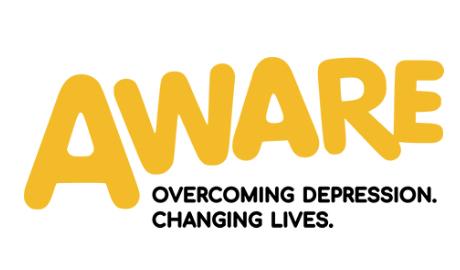Understanding Anxiety
Feelings of anxiety are common, normal, and experienced by everyone in certain situations e.g. sitting an exam, going for interview, crossing the road. In these situations, some anxiety is good, as it helps us to focus on what we are doing or be alert to danger. However, when we become anxious and worried when there is nothing to be anxious about and the feelings become intense, last a long time and start to interfere with our daily lives it may be developing into an anxiety disorder.
Who is at Increased Risk of Having an Anxiety Disorder?
People who had difficult childhood experiences, an overly critical parent or who were raised with expectations of very high standards have an increased risk. They may have a very wary or threatening view of the world or be overly sensitive.
Signs of an Anxiety Disorder
Anxiety affects people in a variety of ways but the symptoms can usually be grouped under four headings:
Thinking
We may think things like ‘something bad is going to happen’, ‘I won’t be able to cope’, or ‘I feel bad so it must be bad’
Feelings
Anxious, fearful, worried, nervous, restless, agitated
Behaviour
Avoiding certain people, places, situations; not going out; only going to places at certain times or only going with someone else or leaving early; increased use of alcohol or drugs
Physical symptoms
Headaches, muscle and/or chest pain, sweating, tingling, numbness, shaking, dizziness, rapid or shallow breathing, rapid heartbeat or palpitations, dry mouth, nausea, vomiting, diarrhoea
Each person is likely to be affected differently and have more problems with some symptoms than others.
Types of Anxiety Disorders
Generalised anxiety disorder is when a person has overwhelming feelings of anxiety or worry more days than not for six months or more. The worry is usually unfounded or exaggerated and is about things that may go wrong and not being able to cope when they do.
Panic disorder – a person with panic disorder suffers from panic attacks. These come on quickly and symptoms are acute, especially hyperventilation, rapid heartbeat and/or chest pain. As the symptoms are similar to a heart attack, the person may fear they are dying. The attack usually eases within a few minutes.
Phobic disorders – a person may suffer from agoraphobia (avoidance of certain situations or places for fear of having a panic attack), a specific phobia (exaggerated or unfounded fear of certain things like spiders, flying, being closed in) or social phobia (fear of any situation where public scrutiny may be possible. The person usually believes that others will think badly of them).
Post-traumatic stress disorder (PTSD) and acute stress disorder – after experiencing, witnessing or hearing about a distressing or disastrous event, a person may suffer one of these disorders. Acute stress disorder gets better within a month whereas PTSD lasts much longer.
Obsessive compulsive disorder (OCD) – a person with OCD has obsessive thoughts (most of these are about fear of harm or contamination) and, in an effort to reduce the anxiety caused by these, carries out compulsive behaviours like excessive cleaning or hand washing.
Many of the symptoms are common to all disorders and people with anxiety may not fit neatly into one particular type.
Depression and Anxiety
These commonly go hand in hand. When we are depressed, we often worry about the future and have a mixture of anxiety and depression. If we have been experiencing high levels of anxiety over a long period of time it may well lead to depression
What Helps for Anxiety
It is really important to see your GP if you think you are suffering from anxiety as he can not only advise on an appropriate course of action but rule out other causes such as some medical conditions or side effects of certain prescription/non-prescription drugs.
Talking therapies
Cognitive behavioural therapy has been proven to be effective for anxiety disorders in both the short and long term. It works on the basis that if we change our unhelpful thinking patterns and behaviour it will improve how we feel. Mindfulness is another proven method of controlling anxiety. It is a way of paying attention to the present moment using meditation and breathing and helps us become more aware of our thoughts and feelings so that, instead of being overwhelmed by them, we're better able to manage them.
Self-help strategies
This can really make a difference. Take slow, small steps and choose what suits you:
- Relax – explore what helps you e.g. CD’s, reading, yoga, massage
- Be active – you don’t have to join a gym! Take the stairs or do tasks more quickly. Do regularly and build up gradually
- Get adequate sleep
- Reduce caffeine intake
- Talk about it with someone you trust
- Challenge your thinking – is it fact or opinion?
- Accept the feelings – ‘this is just anxiety’, ‘It’ll pass like before’
- Avoid alcohol or keep to safe limits
Medication
The GP may prescribe a short course of anti- anxiety medication or tranquilisers to help in a crisis. However, these are addictive and should be time-limited until more effective treatment is in place. Some of the modern day anti- depressants are also very effective for certain types of anxiety or when depression is also present.
























































